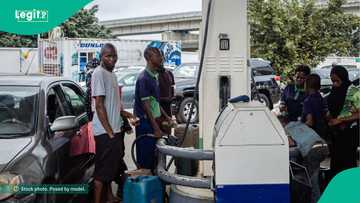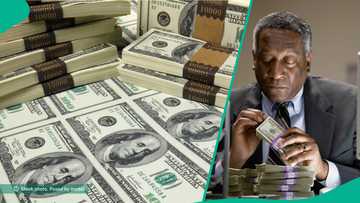Power Companies State Why Ghana, Mali, Others Have Better Electricity Experience Than Nigeria
- DisCos asserts that the other country's Band A customers get the greatest bargains in West Africa
- They insisted that the power industry needs funding in order to invest and improve the electricity subsidy
- They insisted that money is necessary for the power sector to invest and improve the electricity subsidy
CHECK OUT: Education is Your Right! Don’t Let Social Norms Hold You Back. Learn Online with LEGIT. Enroll Now!
Legit.ng journalist Zainab Iwayemi has over 3-year-experience covering the Economy, Technology, and Capital Market.
Electricity distribution companies (DiSCos) have justified the rate increase, claiming that their Band A consumers in the nation receive the best deals in West Africa.

Source: Getty Images
In an interview, Sunday Oduntan, a spokesman for the 11 energy distribution businesses in the nation that are members of the Association of Nigerian Energy Distributors (ANED), gave his remarks.
He said on Thursday’s edition of ChannelsTV Lunchtime Politics,
“Even the band A customers who are currently paying the highest in Nigeria, they pay the lowest tariff in the whole of West Africa.”
The ANED official, who reaffirmed his position, claimed that because they pay for it, energy users in neighboring nations like Ghana, Mali, Burkina Faso, and the Benin Republic receive higher quality output.
“That is why the people supplying are able to recover their cost,” he said.
More funds needed
Oduntan maintained that in order to invest and enhance the electricity subsidy, the power sector needs money.
“That is why they are able to get enough capital to reinject into the system. So, it is very simple.”
When the government announced earlier in the year that it would no longer be subsidising power for some users, the increase in electricity tariffs grabbed headlines.
Customers who received power supply for at least 20 hours per day fell into the Band A user category. Their initial payment of N225 per kWh was reviewed to be approximately N209.80 per kWh.
Nigerians reacted negatively to the measure, but the Federal Government maintained that the electricity subsidy is unsustainable.
“And the journey starts now. That we should do a gradual migration from the subsidy regime to a full cost-reflective regime and we must start with some customers,” the Minister of Power Adebayo Adelabu.
“Whatever consumers pay for, there must be commensurate value for it,” he said, a similar sentiment shared by the ANED spokesman.
“The people in Band A pay more than others because they pay the true cost of electricity in Nigeria which is talking about the cost of production – the landing cost of electricity – cost without subsidy; they are the ones paying without the government subsidizing them,” he said on the show.
“All others, like Band B, are being subsidised by the government for as much as 67 per cent. So, what you pay is not what you are supposed to be paying.”
FG gives orders to reduce electricity supply
Legit.ng reported that after ordering the System Operator (SO) to limit supplies to foreign customers by 6% of domestic supplies, the Nigerian Electricity Regulatory Commission (NERC) is planning to improve electricity delivery to local consumers.
Togo, the Benin Republic, and the Niger Republic are among the impacted nations.
The development occurs in the midst of significant debt and non-payment of electricity bills that have been sent to the nations throughout the years.
PAY ATTENTION: Сheck out news that is picked exactly for YOU ➡️ find the “Recommended for you” block on the home page and enjoy!
Source: Legit.ng





